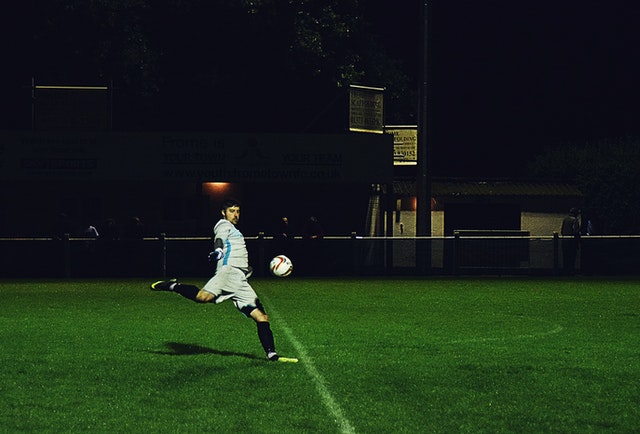Did you know that half of the nerves that run the body are responsible for the eyes? That's a lot of neurology! To move our eyes with precision and accuracy requires a lot of concentration and neuro-muscular power. Your brain is amazing, and vision therapy in Fort Collins, CO will help you see and be your best!
Vision Performance Training (vision therapy, vision rehabilitation, sports vision) trains your eyes and brain to work better together for improved tracking, eye teaming, clarity, fusion, depth perception, visual efficiency, eye-hand coordination, visual memory, reading comprehension, and other important processing skills.
You see with more than just your eyes. Vision is how the brain makes sense of what the eyes see. Vision Performance Training strengthens this process and allows the system to function more efficiently. How much fusion, suppression, or double vision do you experience? How well do your eyes and brain see 3D and manage spatial awareness? Can you visualize and process vision information efficiently? Oftentimes relaxing glasses with prisms and magnifiers give the visual system a boost toward better performance, but nothing beats putting in the hard work to train your eyes and brain to work together.

Reading
Processing
Near work
Visual tracking
Binocular vision disorders
Don’t wait to enhance your academic performance. We know how stressful and disheartening it can be to struggle in school without answers or progress. Vision performance training can help empower your student to become the confident, successful student you know they can be!



headaches in forehead or temple
being overwhelmed in visually stimulating environments
school work or computer work takes hours longer than it should
problems with coordination (tripping/stumbling and poor eye-hand coordination)
becoming fatigued with reading
This website has behavioral signs and symptoms of vision problems.
Multiple research papers strongly recommend that patients with concussions, post-concussion syndrome, or any type of brain injury should be given a comprehensive vision examination, specifically testing for convergence, eye movement, and accommodative function. These types of tests are not done by your family optometrist or a neurologist but by an optometrist specializing in vision development or an optometrist trained in neuro-optometric rehabilitation. Some neuro-ophthalmologists and developmental ophthalmologists also do this type of diagnosis.
Your comprehensive vision exam will include:
Visual acuity at near
Eye teaming skills
Eye focusing skills
Eye movement skills
Several types of specialists can diagnose ocular-motor (vision) dysfunction:
Vision Development optometrists
Neuro-optometric rehabilitation optometrists
Behavioral optometrists
Neuro-ophthalmologists
Developmental ophthalmologists
Specialists in Opthalmological TBI diagnosis, for example, Steve Rauchman, M.D. in Los Angeles
CANADA
York Regional Concussion Clinic (Ontario)

Dr. Jessica Schwartz, the host of Concussion Corner podcast, interviews Dr. Neera Kapoor on the role of neuro-optometry in concussion management. Midway into the interview, Dr. Kapoor gives the best description we've heard of the kinds of vision problems people with concussions experience.
Amy Zellmer, the host of Faces of TBI podcast, interviews Kara Christy, occupational therapist, and certified brain injury specialist, about cognitive-perceptual motor retraining and vision therapy.
The Concussion Project has extensive information about concussion vision issues and treatment. Also recommended is the specific page for individuals.
Visionhelp.com has links to helpful articles about this topic as well as a doctor search tool.
COVD.org is the College of Optometrists in Vision Development, which has explanations about vision diagnosis and therapy and a doctor search tool.
Neuro-Optometric Rehabilitation Association has some helpful articles, plus a doctor search tool.
MinnesotaVisionTherapy has a good page explaining the vision therapy process. Their program makes use of Light Therapy (Syntonics), which utilizes colored light frequencies to enhance visual processes.
The following Lifemark article, Vision issues following a concussion - there is hope and help, does a good job of describing the different kinds of vision issues and symptoms typical after a concussion.
Steve Rauchman, M.D., Specialist in Opthalmological TBI diagnosis, has a useful blog about traumatic brain injury, concussions, and vision issues.
Military Medicine has published a study by Anthony P Kontos PhD et al., finding that 51 military and civilian patients who had chronic concussion symptoms (1-3 years) showed "significant improvement in symptoms [including] cognitive, vestibular, oculomotor, and balance function, following targeted intervention interventions.” These interventions involved behavioral, vestibular, vision, and exertional therapy.
Optometry and Vision Science published a study concerning four prevalent vision dysfunctions resulting from a TBI. Natalya Merezhinskaya, PhD et al. did a systematic review and analysis of 22 research studies, and found that of patients who had suffered a TBI, 42.8% had accommodative dysfunction (eyes have trouble focusing), 36.3% had convergence insufficiency (eyes unable to work together to view near objects), 18.2% had visual field loss, 0% had visual acuity loss (this is the clarity or sharpness of vision, typically what the family optometrist measures for, which can lead to a lack of diagnosis for vision dysfunction after a concussion).
Researchers at UC San Francisco have done an extensive review of cases involving children and adolescents with post-concussion syndrome (PCS). They have established what treatments are most applicable for different symptoms. They found that the best way to organize treatment was a breakdown of therapies by four symptom groups: vestibular-ocular, autonomic (or physical), emotional, and cognitive. The study, by Mitul Kapadia et al.,was published in Current Reviews of Musculoskeletal Medicine.
